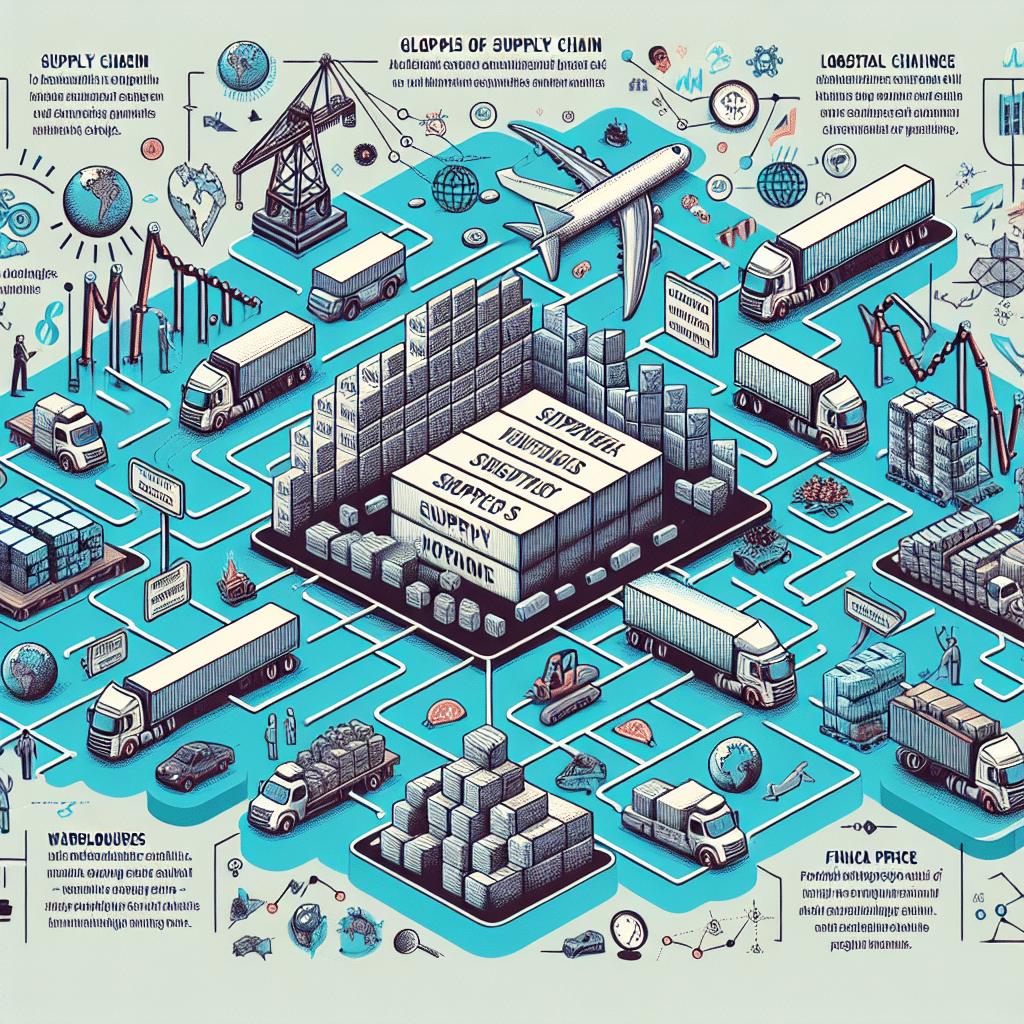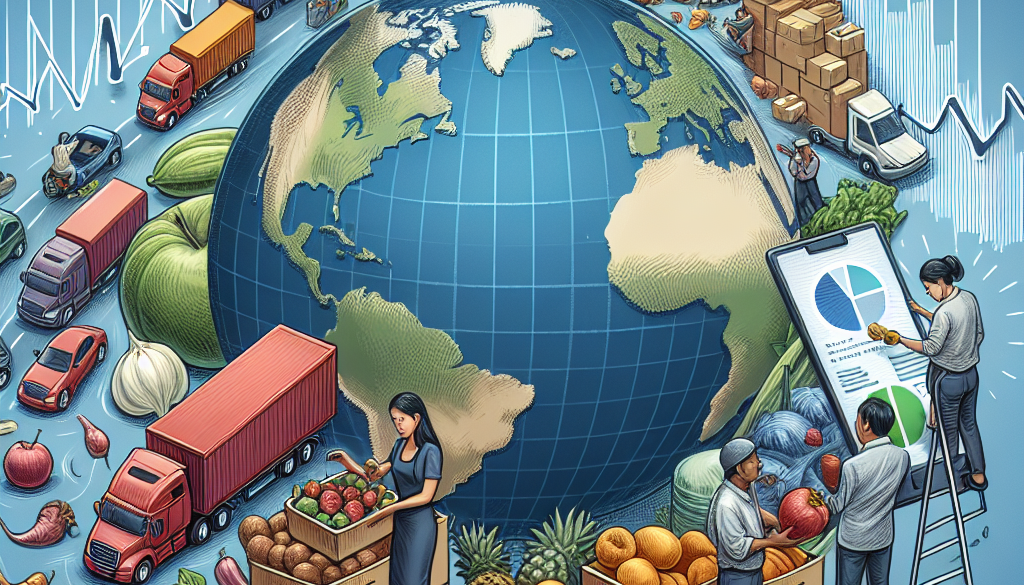Top Problems Faced by Food Distribution Firms
-
Table of Contents
- Top Challenges Food Distribution Firms Must Navigate
- 1. Supply Chain Disruptions
- 2. Regulatory Compliance and Food Safety
- 3. Transportation and Logistics Challenges
- 4. Demand Forecasting and Inventory Management
- 5. Technological Advancements and Adoption
- 6. Environmental Sustainability
- Conclusion
- ETprotein: Your Partner in Quality Protein Products
Top Challenges Food Distribution Firms Must Navigate

The food distribution industry is a critical component of the global supply chain, ensuring that a wide variety of products reach consumers efficiently and safely. However, this sector faces numerous challenges that can impact operations, profitability, and sustainability. In this article, we will explore the top problems faced by food distribution firms and provide insights into how these issues can be addressed.
1. Supply Chain Disruptions
Supply chain disruptions are a significant concern for food distribution firms. Factors such as natural disasters, pandemics, political instability, and trade disputes can all lead to interruptions in the supply chain. According to a survey by the Business Continuity Institute, 69% of organizations have reported at least one supply chain disruption in the past year, with the food and beverage industry being one of the most affected sectors.
- Difficulty in sourcing raw materials
- Delays in transportation and logistics
- Increased costs due to scarcity of supplies
2. Regulatory Compliance and Food Safety
Food distribution firms must navigate a complex web of regulations that vary by country and region. Compliance with food safety standards such as the Food Safety Modernization Act (FSMA) in the United States or the General Food Law in the European Union is mandatory. Non-compliance can lead to product recalls, legal penalties, and damage to brand reputation.
- Implementing traceability systems
- Maintaining hygiene and safety standards
- Adapting to changing regulations
3. Transportation and Logistics Challenges
Efficient transportation and logistics are vital for timely food distribution. However, firms often face challenges such as rising fuel costs, driver shortages, and vehicle maintenance. The American Transportation Research Institute reported that the operational costs of trucking increased by 7.7% in 2020, with fuel and driver wages being the largest expenses.
- Optimizing delivery routes
- Investing in fleet management technology
- Exploring alternative transportation modes
4. Demand Forecasting and Inventory Management
Accurately predicting consumer demand is crucial for food distribution firms to manage inventory levels effectively. Overstocking can lead to waste, especially with perishable goods, while understocking can result in lost sales. Advanced analytics and demand forecasting tools can help firms balance inventory with demand, but adoption can be costly and complex.
- Integrating data-driven forecasting models
- Reducing food waste through better inventory management
- Adapting to consumer trends and seasonal fluctuations
5. Technological Advancements and Adoption
Technology plays a pivotal role in modernizing the food distribution industry. However, integrating new technologies such as blockchain for traceability, the Internet of Things (IoT) for monitoring, and artificial intelligence (AI) for logistics can be challenging. The initial investment and the need for skilled personnel to manage these technologies are significant barriers.
- Investing in technology infrastructure
- Training staff on new systems
- Ensuring cybersecurity in an increasingly digital world
6. Environmental Sustainability
Environmental sustainability is becoming increasingly important for consumers and regulators alike. Food distribution firms must find ways to reduce their carbon footprint, manage waste, and implement sustainable practices. This includes optimizing delivery routes to reduce emissions and transitioning to eco-friendly packaging.
- Implementing green logistics practices
- Exploring renewable energy sources
- Reducing plastic use and food waste
Conclusion
Food distribution firms are at the heart of a complex and ever-changing industry. They face a multitude of challenges, from supply chain disruptions and regulatory compliance to technological adoption and environmental sustainability. By addressing these issues proactively, firms can improve their operations, reduce costs, and meet the evolving demands of consumers and regulators. The key takeaways for food distribution firms are to invest in technology, prioritize sustainability, and remain agile in the face of supply chain uncertainties.
ETprotein: Your Partner in Quality Protein Products
In the context of food distribution, protein products are a staple in many consumers’ diets. ETprotein company’s protein products stand out as a reliable choice for food distribution firms looking to enhance their offerings with high-quality, organic, and non-GMO protein options. Their range of plant-based proteins, including rice, pea, and seed proteins, cater to the growing demand for sustainable and allergen-free ingredients. Additionally, ETprotein’s L-(+)-Ergothioneine (EGT) products offer purity and quality that can be incorporated into various applications, from nutraceuticals to cosmeceuticals.
For food distribution firms looking to expand their product lines with innovative and health-conscious options, ETprotein provides a comprehensive solution. Their commitment to excellence and customer service makes them an ideal partner for businesses aiming to stay ahead in the competitive food industry.
About ETprotein:
ETprotein, a reputable protein and L-(+)-Ergothioneine (EGT) Chinese factory manufacturer and supplier, is renowned for producing, stocking, exporting, and delivering the highest quality organic bulk vegan proteins and L-(+)-Ergothioneine. They include Organic rice protein, clear rice protein, pea protein, clear pea protein, watermelon seed protein, pumpkin seed protein, sunflower seed protein, mung bean protein, peanut protein, and L-(+)-Ergothioneine EGT Pharmaceutical grade, L-(+)-Ergothioneine EGT food grade, L-(+)-Ergothioneine EGT cosmetic grade, L-(+)-Ergothioneine EGT reference grade and L-(+)-Ergothioneine EGT standard. Their offerings, characterized by a neutral taste, non-GMO, allergen-free attributes, with L-(+)-Ergothioneine purity over 98%, 99%, cater to a diverse range of industries. They serve nutraceutical, pharmaceutical, cosmeceutical, veterinary, as well as food and beverage finished product distributors, traders, and manufacturers across Europe, USA, Canada, Australia, Thailand, Japan, Korea, Brazil, and Chile, among others.
ETprotein specialization includes exporting and delivering tailor-made protein powder and finished nutritional supplements. Their extensive product range covers sectors like Food and Beverage, Sports Nutrition, Weight Management, Dietary Supplements, Health and Wellness Products, and Infant Formula, ensuring comprehensive solutions to meet all your protein needs.
As a trusted company by leading global food and beverage brands and Fortune 500 companies, ETprotein reinforces China’s reputation in the global arena. For more information or to sample their products, please contact them and email sales(at)ETprotein.com today.












